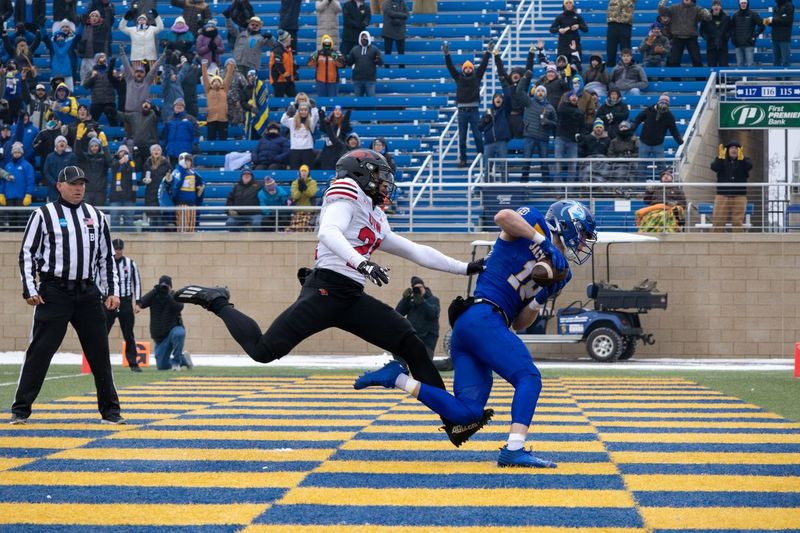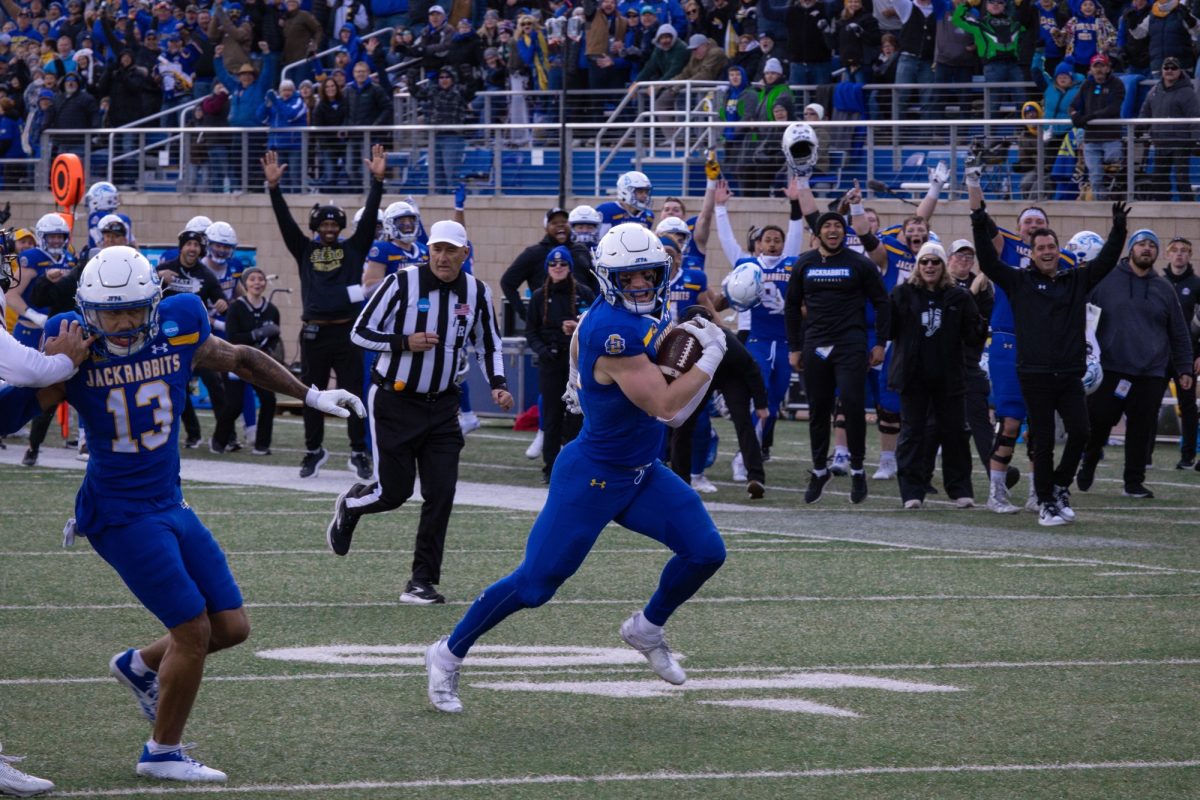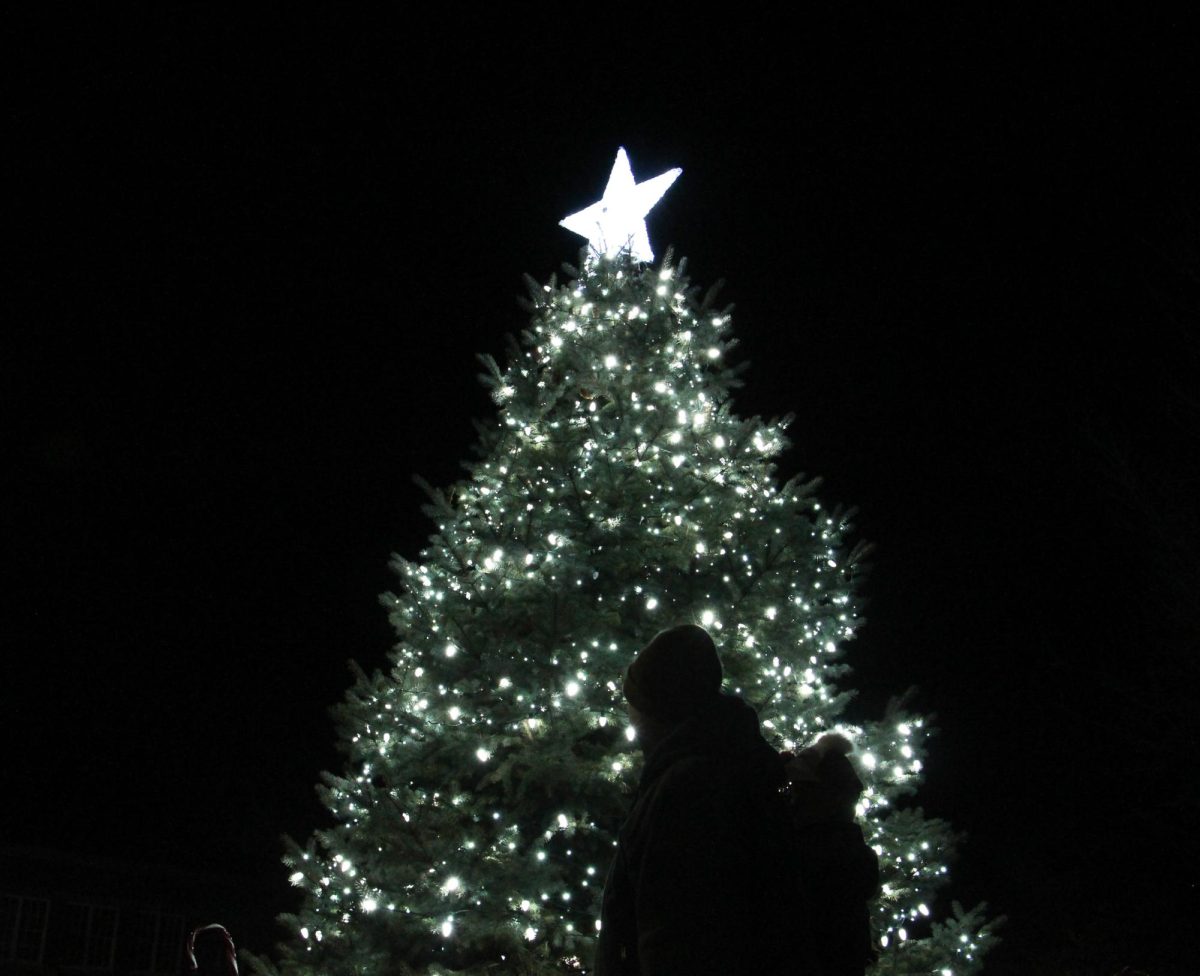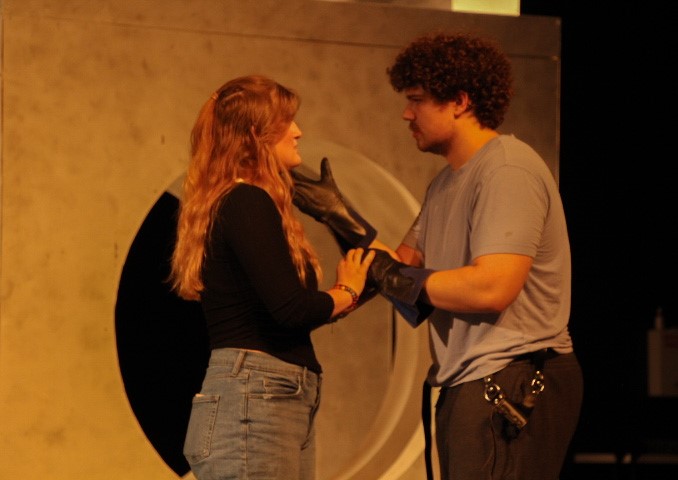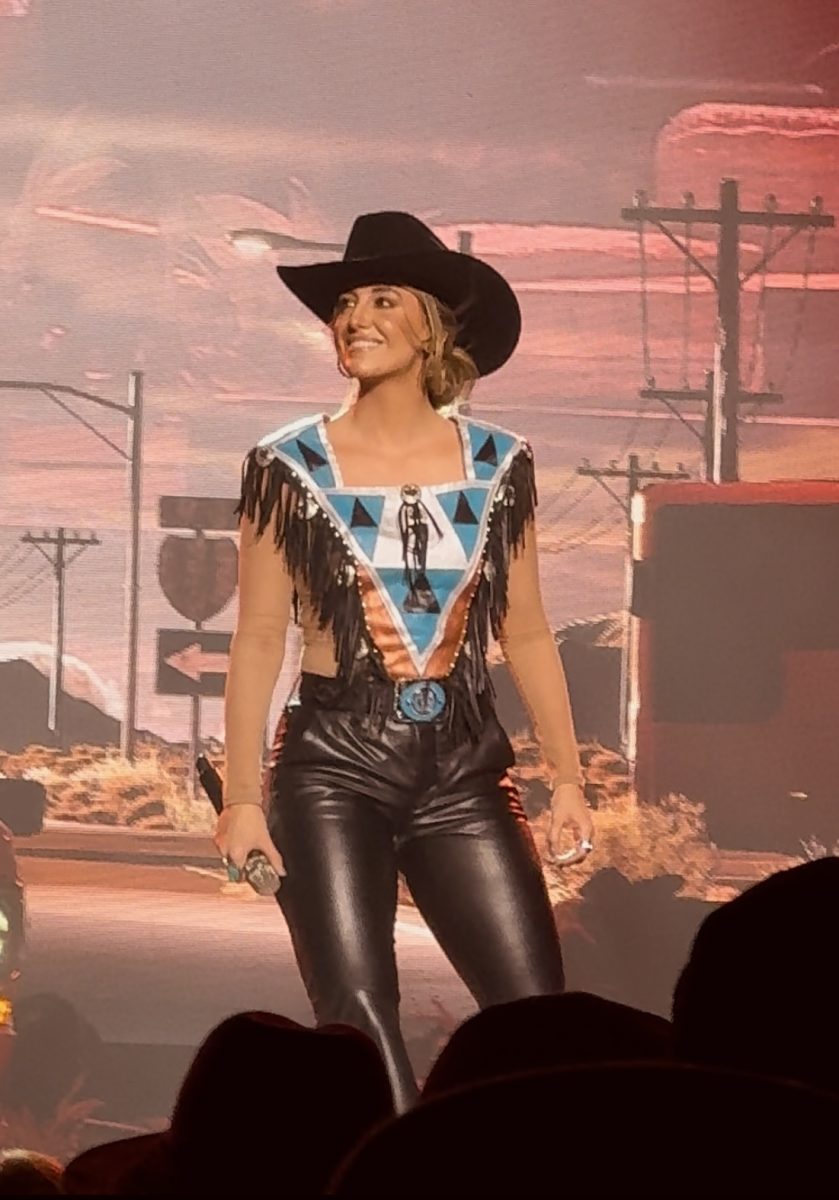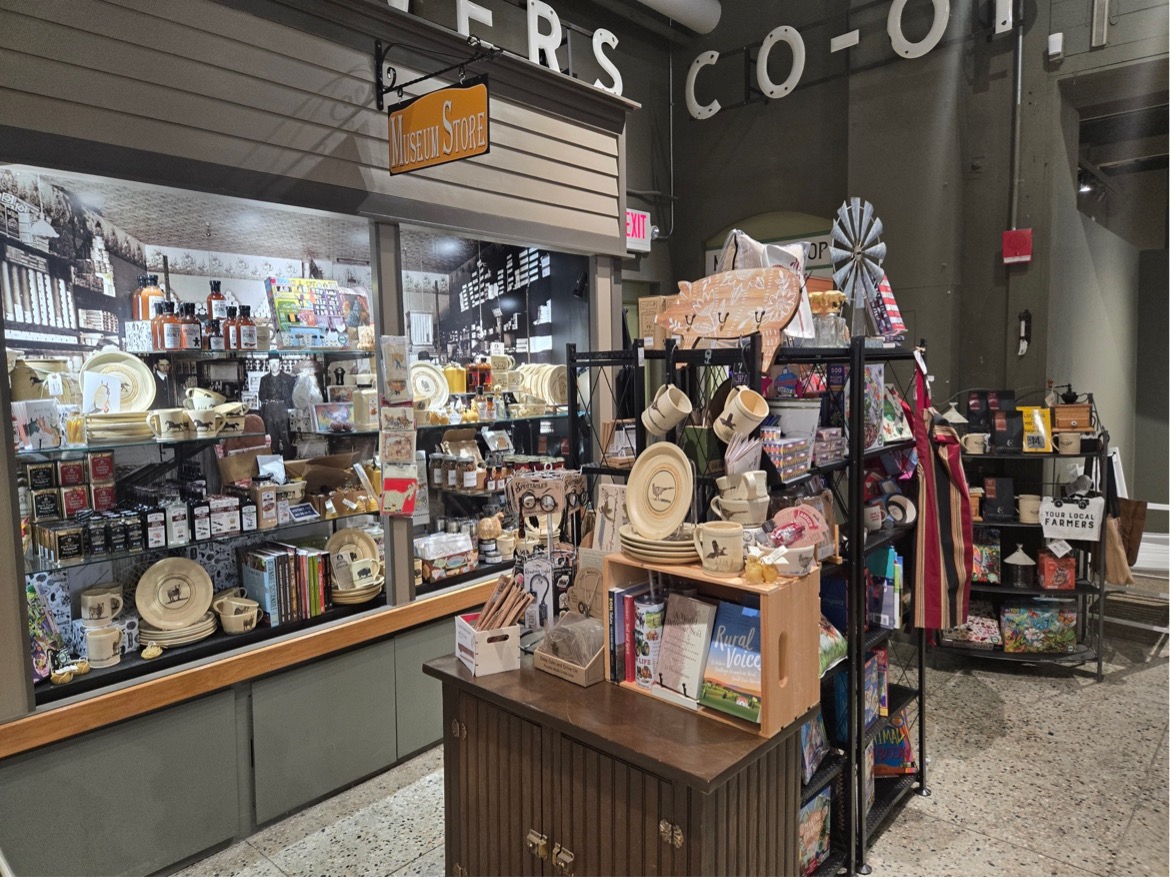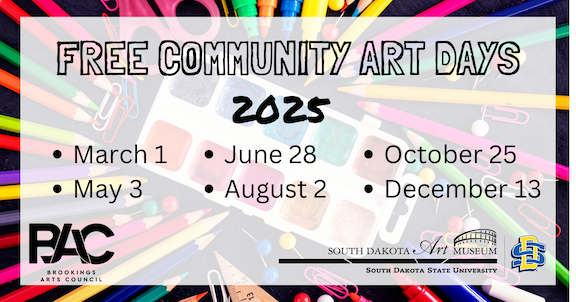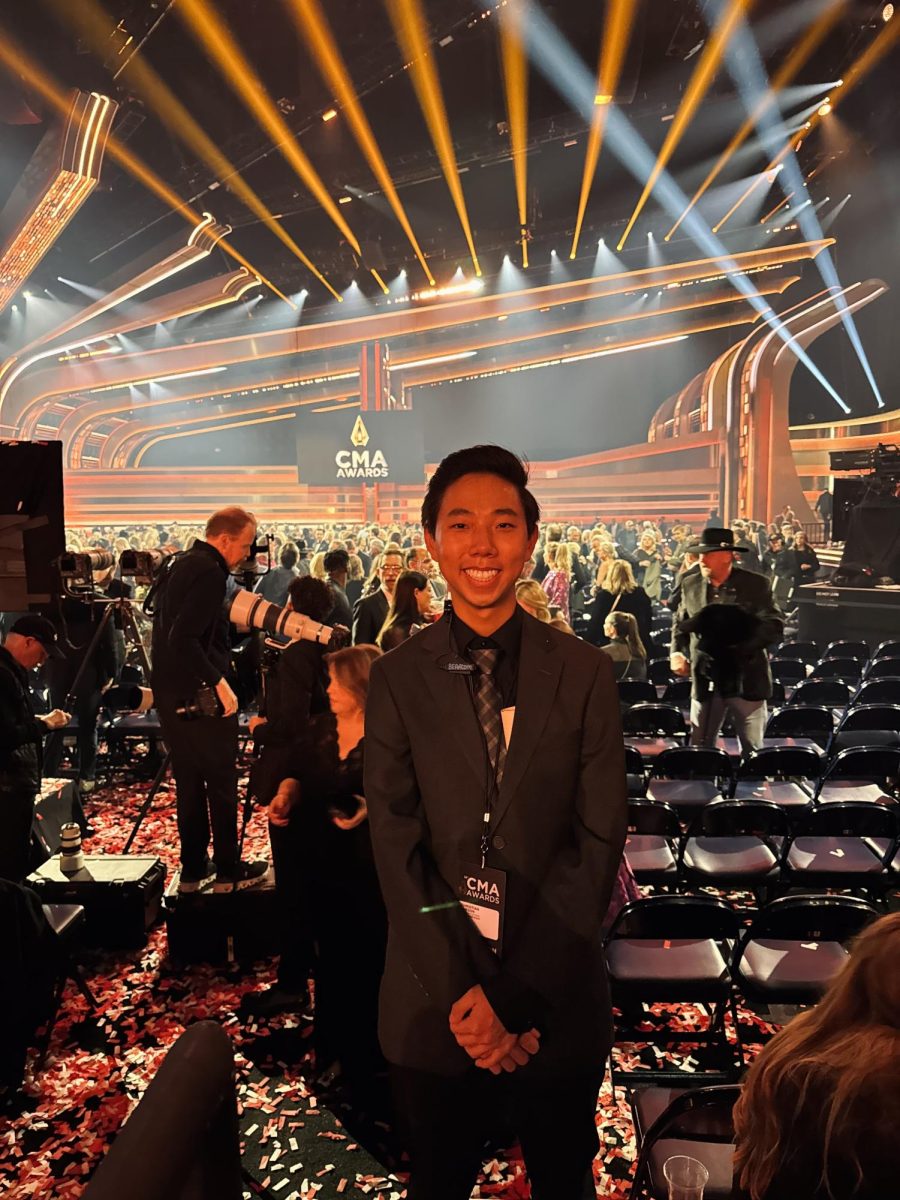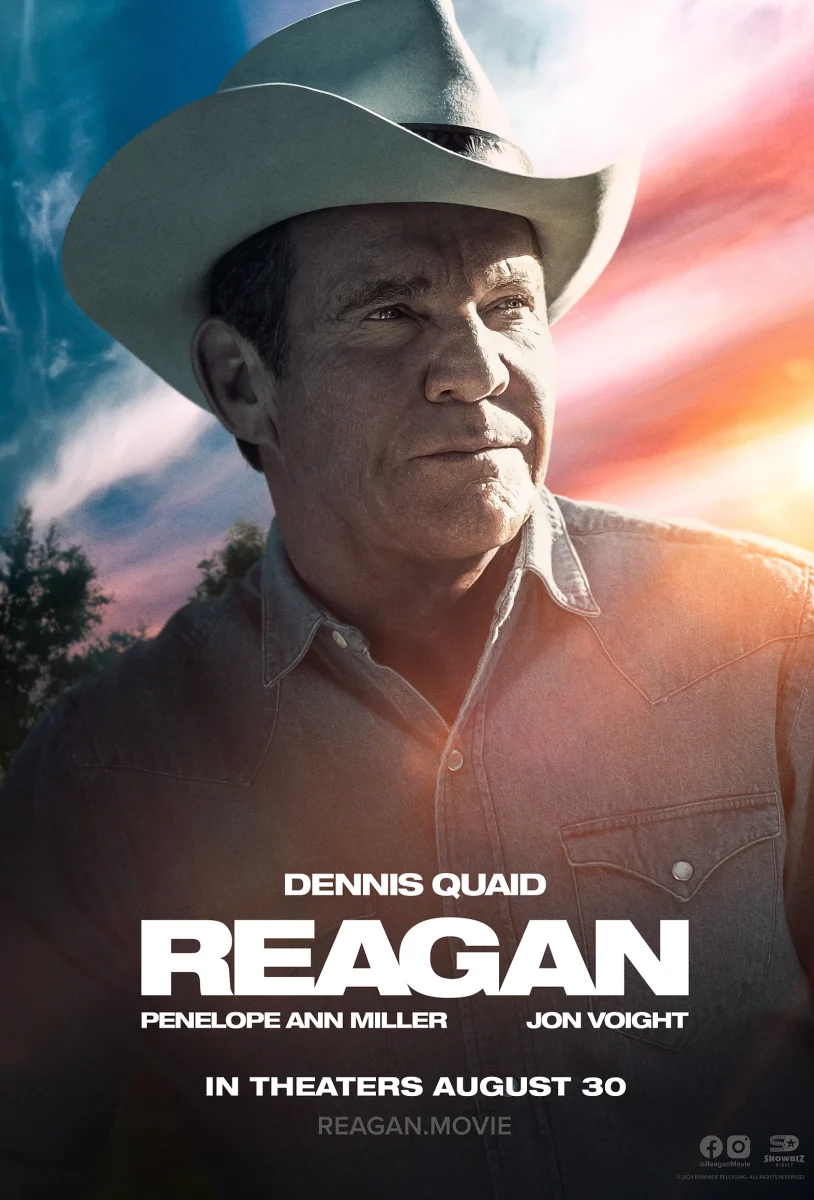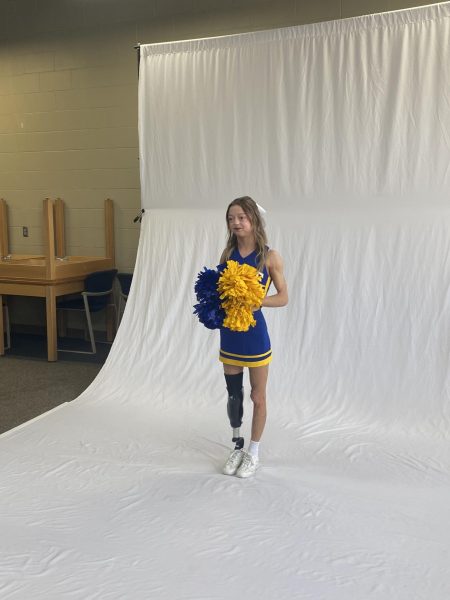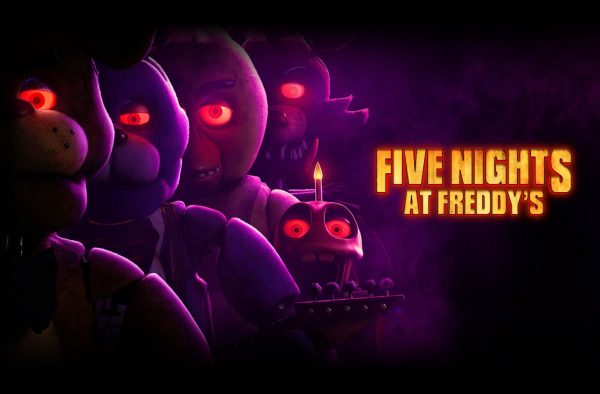“Rebecca” entertains despite flaws
November 11, 2002
Patrick Grode
Misty moors, isolated mansions, creepy servants, dark nights, stormy seas, and an innocent young woman? Alfred Hitchcock’s Rebecca has all the elements of a classic horror movie. It also exhibits the innovative camera angles and plot twists expected of the great director.
Laurence Olivier and Joan Fontaine star in Hitchcock’s first American venture. They are well-cast as a young former servant and her older, aristocratic husband. The tale is a ghost story, but the ghost is not some ectoplasmic specter. Hitchcock’s spook is the overwhelming psychological echo of Rebecca, Olivier’s dead first wife.
The audince feels Rebecca’s haunting presence in the chatter of the servants, the distance between Fontaine and Olivier, and the omnipresence of Rebecca’s signature-bearing possessions. The viewer constantly expects to see something truly supernatural, but never does. One scene features a close-up of a family portrait as the characters are leaving, and you expect the eyes to follow Joan Fontaine, a la Scooby-Doo. The fact that they do not is unexpectedly eerie.
The last hour of the film contains two radical plot twists that one could scarcely see coming and yet make sense, which is the most difficult breed of plot twist to produce.
In the final analysis, however, Rebecca is not one of Hitchcock’s better films. It was filmed in 1940, early in Hitchcock’s career and during a period of development in American cinema. Film was beginning to become its own medium, rather than simply a recorded version of theater.
Innovative directors like Hitchcock were experimenting with camera angles, close-ups, and pan shots, techniques impossible in live drama. Hitchcock’s early films were a marked departure from the conventional, and Rebecca is an excellent example of his emerging style.
The acting, despite the famous leads, is overdone by modern standards. Fontaine, Olivier, and the rest of the cast look like they are playing parts in a stage or silent film melodrama. This style of acting, though typical of the period, tends to detract from the suspense Hitchcock is trying to conjure.
Hitchcock’s signature suspense, while definitely present throughout most of the film, is more of a background hum than the constant tenseness he achieves in films like Vertigo or Strangers on a Train. Likewise, Hitchcock doesn’t coax his audience into the personal connection one feels with Cary Grant in To Catch a Thief or Jimmy Stewart in Rear Window.
The characters in Rebecca are sketchy and far more underdeveloped than one would expect in a two-hour movie.
One must regard Rebecca as a piece from a developing artist, one who would reach far greater heights later in his career. The echo of genius is there, but it is not yet entirely realized.
Despite that negative commentary, I truly enjoyed Rebecca, not only as a look at Hitchcock’s early work and developing style but also as a good film to relax with.
The plot moves slowly, but it avoids being dull, and the adaptation of the Gothic ghost story format is ingenious.
Rebecca is a movie that held my interest for over two hours and remains in my memory. I bought into the story and characters at some level, and would watch the movie again.
In other words, the film was a success.
Reach Patrick Grode at [email protected].






